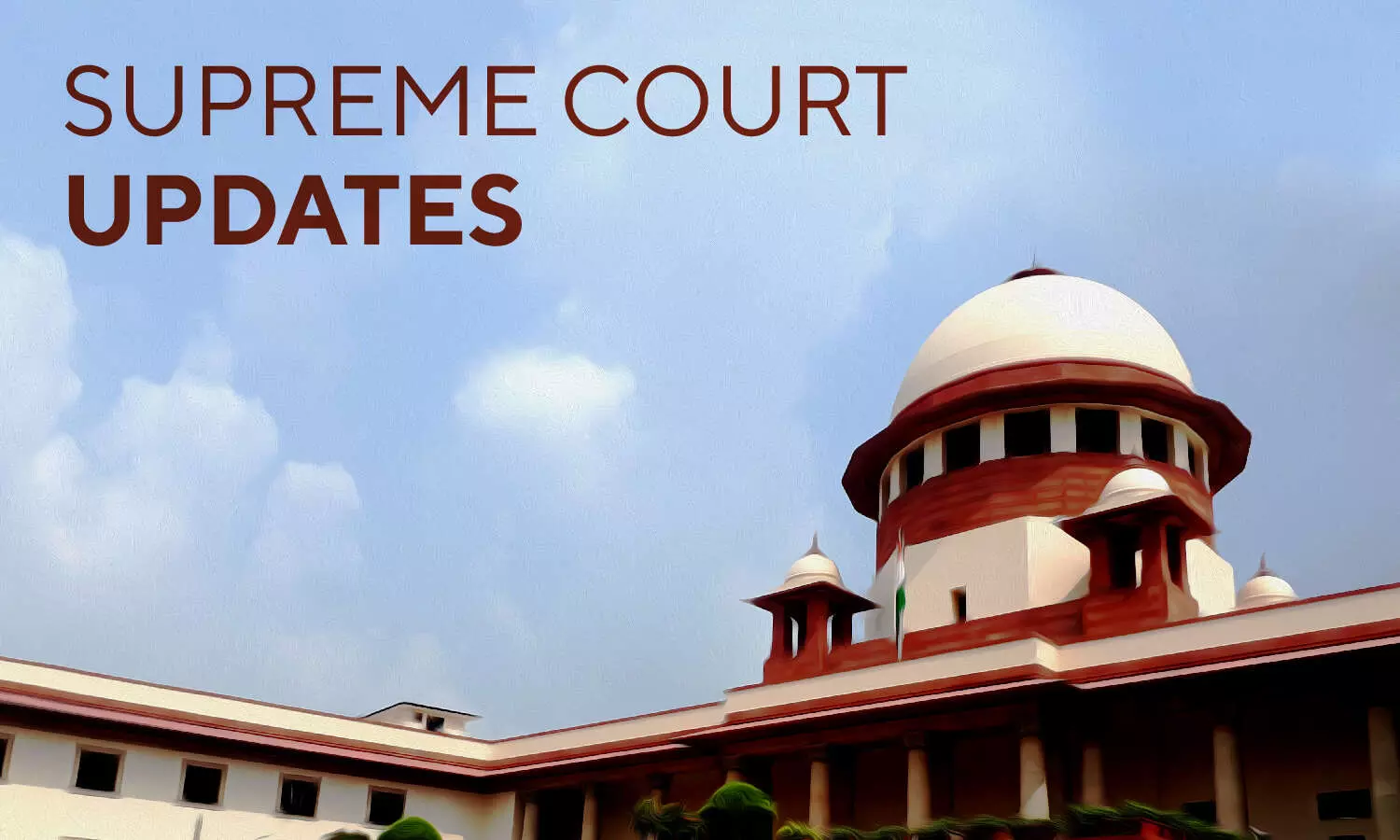
Figures Not Realistic: Supreme Court Directs States To Continue With Identification Of Sex Workers
 |
|The Supreme Court today directed states and Union Territories to continue with the process of identification of sex workers who do not have identity proof and are deprived of dry ration.
A Bench of Justice L Nageswara Rao and Justice B R Gavai said the figures that have been given by states in the status reports are not realistic and efforts have to be made by them to consult community based organisations without relying on list of National AIDS Control Organisation (NACO) for implementation of orders.
Apart from ration cards, the states shall also take steps to issue voter cards to sex workers identified by NACO and community based organising after verification
The state government, UTs shall continue to give dry ration without insisting on proof of identify, the Bench said while asking the states to submit reports in three weeks.
It added that having dealt with status reports by West Bengal and Maharashtra, it's not necessary to take up status report of each state separately.
We direct all states and UTs to continue with the process of identification of sex workers who do not have identify of proof and who are deprived of dry ration, the Court said.
The direction came after the Apex Court was informed that there are 6,227 sex workers in West Bengal.
The state told the Bench that sex workers have been given food coupons which entitle them for 5 kg foodgrains.
Looking at the numbers in other states, we are not sure of the 6,227 numbers as given by West Bengal.
We direct the sex workers to be identified again in West Bengal with help of NACO and issue them ration cards without insisting on any other identity card, the bench said.
Unique Identification Authority of India (UIDAI) told the top court that a suggestion has been made that an Aadhaar card can be issued to sex workers without insisting on proof of identity subject to the condition that producing certificate issued by a gazetted officer of NACO.
The amicus curiae sought time to obtain instructions about the workability of the proposition.
Noting that a large number of sex workers are left out from the issuance of ration cards, the top court had earlier said the basis for their identification need not be restricted to the list provided by NACO.
It had asked community-based organisations to prepare a list of sex workers in their areas which shall be verified by the concerned district legal services authority/ State Aids control society.
On verification, the list shall be forwarded to the competent authority, the top court had said while directing the state authorities to maintain confidentiality in the matter.
Observing that fundamental rights are guaranteed to every citizen irrespective of vocation, the apex court had directed the Centre, all the states and union territories to commence the process of issuing voter, Aadhaar and ration cards to sex workers and keep providing dry ration to them.
The Apex Court, hearing a plea that has raised the problems faced by sex workers due to the COVID-19 pandemic, has been passing orders for their welfare and on September 29 last year, had asked the Centre and others to provide dry ration to them without insisting on their identity proof.
The plea has highlighted the destitution faced by sex workers on account of COVID-19, and sought relief measures for over nine lakh female and transgender sex workers across India.
The Bench had directed that authorities can take assistance of NACO and state AIDS control societies which, in turn, will prepare a list of sex workers after verifying the information provided to them by the community-based organisations.
The Apex Court, on September 29, 2020, had directed all the states to provide dry rations to sex workers, who are identified by NACO, without insisting on any proof of identity and had sought a status report on compliance.
With PTI inputs